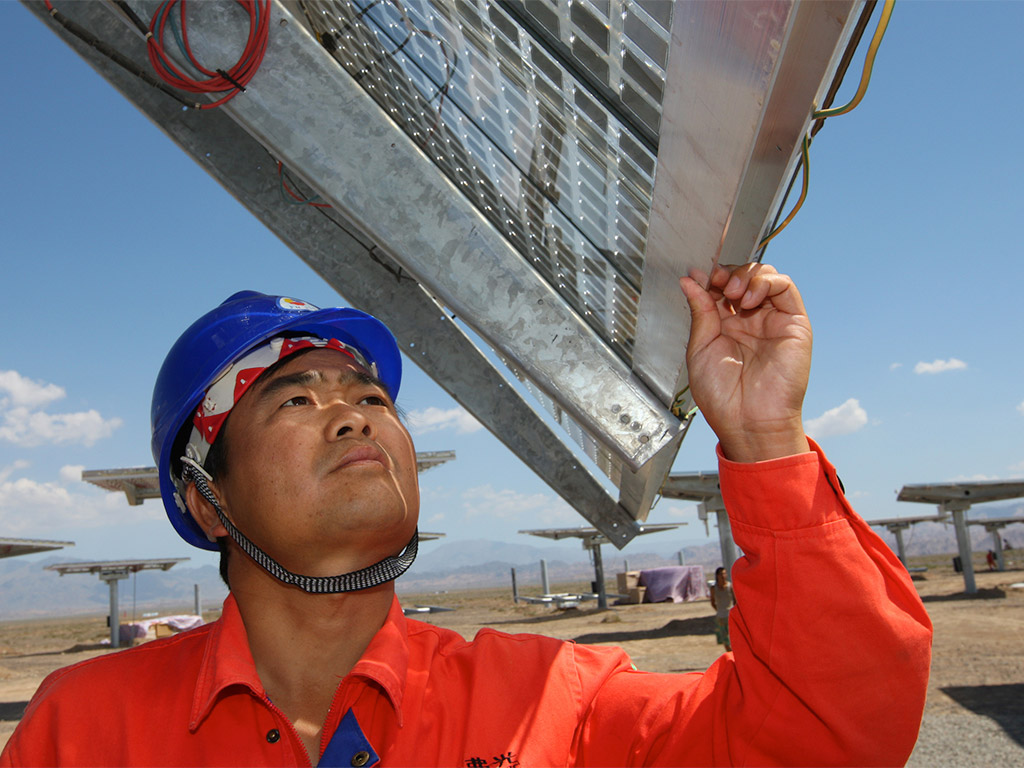US imposes steep duties on Chinese solar imports
An on-going trade dispute between the US and China has taken a sharp turn after the US imposed strict tariffs on the import of Chinese solar panels

A man installs solar photovoltaic plates in China's Xinjang. The US Commerce Department has placed steep duties on importers of Chinese solar panels after they found evidence to suggest manufacturers had benefited from unfair subsidies
The US Commerce Department has imposed steep duties on importers of Chinese solar panels made from certain components, after the department suggested that the manufacturers had benefited from unfair subsidies.
The duties will range from 18.56 to 35.21 percent, depending on the manufacturer and addresses a key charge in a petition by SolarWorld Industries America. This follows the US imposing duties of roughly 24 to 36 percent on imported panels made from Chinese solar cells in 2012 after concluding that Chinese solar companies had received unfair subsidies from their government and dumped cheap products on the US market. Despite this, several Chinese companies avoided the duties by assembling panels from cells produced in Taiwan, even if those cells were derived from components from China. Essentially, SolarWorld petitioned to close that loophole.
“Today is a strong win for the US solar industry,” said Mukesh Dulani, President of SolarWorld Industries America in a statement. “We look forward to the end of illegal Chinese government intervention in the US solar market, and we applaud Commerce for its work that supports fair trade.”
While the latest duties are preliminary, the ruling means that the US authorities will begin collecting tariffs ahead of the final decision in August.
The decision comes against a backdrop of increasing trade conflicts between the US and China, as well as a stiff fight over a solar industry, which has shifted manufacture and installation from Europe to Asia. However, the dispute has also caused friction in the US solar industry. While many manufacturers are close to bankruptcy thanks to intense competition from China developers, installers and consumers have been helped by the availability of inexpensive panels.
“Although…we are working with all segments of the industry to find a consensus solution – we’re quickly running out of time,” Rhone Resch, Chief Executive of the Solar Energy Industries Association, said in a statement. “These damaging tariffs will increase costs for US solar consumers and, in turn, slow the adoption of solar.”
What’s more, there’s no suggestion that the dispute will end any time soon. China imposed tariffs in January on American and South Korean polysilicon, which is used for conventional solar panels. And last month the Justice Department indicted five Chinese military personnel for online attacks on US firms, which included SolarWorld as a prime target.













